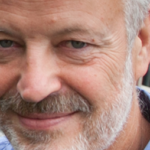Simon Taylor of Global Witness Accepts Skoll Award
Speakers
-
Charmian Gooch jointly led Global Witness's first campaign, exposing the trade in timber between the Khmer Rouge and Thai logging companies and their political and military backers. Subsequently, Charmian developed and launched Global Witness’s ground-breaking campaign to combat ‘blood diamonds’; Global Witness was nominated for the 2003 Nobel Peace Prize as a result of this work.
In 2014 Charmian was awarded the TED Prize, given to an ‘extraordinary individual with a creative and bold vision to spark global change’. In the same year, Charmian along with Global Witness co-founders Patrick Alley and Simon Taylor, received the Skoll Award for Social Entrepreneurship, awarded to ‘transformative leaders who are disrupting the status quo’. She was also named one of Fast Company’s 100 most creative people in business and is a Young Global Leader Alumni.
-

Patrick Alley, Director and Co-founder of Global Witness
Patrick co-founded Global Witness in 1995. Since then Global Witness has become a global leader in its field, described by Aryeh Neier, former president of the Open Society Foundations, thus: “Global Witness brings together the issues of human rights, corruption, the trade in natural resources, the role of banks, the arms trade, conflict. It is the only organisation that does this. Period.”
Patrick has taken part in over fifty field investigations in South East Asia, Africa and Europe and in subsequent advocacy activities. Patrick conceived several of Global Witness’ campaigns and focuses on corruption, conflict resources, forests and land & environmental defenders. He is a board director of Global Witness and is involved in the organisation’s strategic leadership.
Alongside his two co-founders, Patrick received the 2014 Skoll Award for Social Entrepreneurship.
Patrick is a trustee of the OpenCorporates Trust Limited and on the advisory groups of Indigenous Peoples Rights International and Climate Counsel.
-

Simon Taylor is a co-founder and Executive Director of Global Witness. Simon launched Global Witness’ oil and corruption campaign in 1999. This work began the global call for transparency of payments made by extractive industry companies to governments for the oil, gas and minerals that they extract– revenue streams that for many countries almost make up all government income. Exposing corruption in these sectors led to Global Witness’ conception of the Publish What You Pay (PWYP) Campaign, which Simon co-launched in 2002 with George Soros and other NGOs including Transparency International (UK) and Save The Children Fund UK. The launch of PWYP, which now consists of over 840 civil society organisations in more than 64 countries worldwide, led directly to the 2002 creation of the extractives industries transparency Initiative (EITI) by the UK Government. EITI is now an independent global multi-stakeholder initiative that places civil society in the central role of holding governments and companies to account for the revenue streams developed from extraction.
Simon is also working on campaigns focussed on creating accountability in the extractives sector. These include a focus on investigations and exposes of malfeasance in the oil, gas and mining sectors, which have provided the underpinning for international policy reforms, seeking transparency and detailed disclosures around the activities of the extractives sector – cited by the OECD as the most corrupt business sector on the planet – including disclosure of the beneficial owners of participating companies, contract transparency, environmental disclosures, including free prior and informed consent and environmental impact assessments. Evidence generated by investigations has also been used to initiate criminal investigation and prosecution of companies and high-level executives for grand corruption.
Simon is increasingly focusing on climate change, with a particular interest in the way in which the fossil fuel industry has corrupted and co-opted global politics to such an extent that it has been able to prevent appropriate action to address the climate crisis.